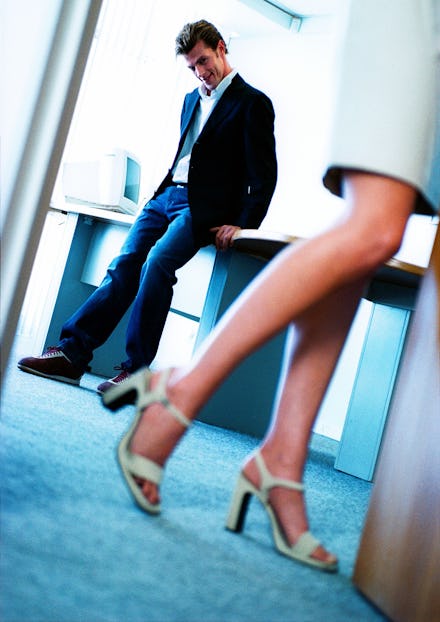Washington, D.C. Just Set a Disturbing Precedent for 'Upskirt' Photos

The news: A Washington, D.C. judge has ruled that taking indecent photos of unsuspecting women without their consent is totally legal because women have no expectation of privacy in a public space. The ruling forced prosecutors to abandon charges against Washington, D.C. man Christopher Cleveland, who ABC 7 reports was arrested after he was caught taking photographs of women near the Lincoln Memorial.
Judge Juliet McKenna agreed that the "fact that the Defendant was intentionally photographing publicly exposed areas of women's clothed and unclothed bodies ... is repellant and disturbing," but ultimately concluded that since Cleveland did not go to "extraordinary lengths" to obtain the photographs he did not commit a crime.
"This Court finds that no individual clothed and positioned in such a manner in a public area in broad daylight in the presence of countless other individuals could have a reasonable expectation of privacy," she ruled. "The images captured were not 'incidental glimpses' and in fact were images that were exposed to the public without requiring any extraordinary lengths whatsoever, to view."
McKenna shot down the criminal complaint, which accused him of illegal voyeurism. The Daily Dot's Rob Price argued that Cleveland's photos fall under the broader informal category of "creepshots." But whatever you want to call it, it's apparently legal in the nation's capital.
How this could happen: The ruling comes on the heels of two other cases in Massachusetts and Texas that threw out laws designed to protect women and affirmed creepshots are still very much legal — for now.
The Los Angeles Times reports that in Texas, courts threw out the old law, which prohibited photography "with intent to arouse or gratify the sexual desire of the defendant," which is in fact pretty broad. Texas prosecutors also bungled the case, arguing that photographs were nothing more than "refracted electromagnetic radiation" which held no intrinsic expressive value. So it's no wonder courts looked upon the law poorly.
But courts have upheld more focused protections for women. In Massachusetts, state legislators were able to rewrite their law to be quite specific: It now makes "the secret photographing, videotaping, or electronically surveilling of another person's sexual or other intimate parts" a crime.
In Washington, D.C., though, the voyeurism law applies only when victims have "a reasonable expectation of privacy." The Washington Post explained that means Cleveland's clearance by Washington, D.C. courts is thus "purely legal," even creepshots expose women to "sustained, humiliating attention."
Why you should care: It's easy to be angry at the courts for excusing exploitative behavior that humiliates and degrades all kinds of people, and it matters that the people down the zoom lens are disproportionately women. It's deserved, too; when the legal system protects predators, the victim, and arguably society, loses. That shouldn't happen in a fair country where women have the right to not be victimized for being outside.
Lawmakers can follow Massachusetts' example and show they think protecting people from creepshots is a priority. Or they can continue to let the status quo stand, allowing the photos as a form of free speech as long as they didn't require "extraordinary effort" to obtain. Let's hope it's the former.